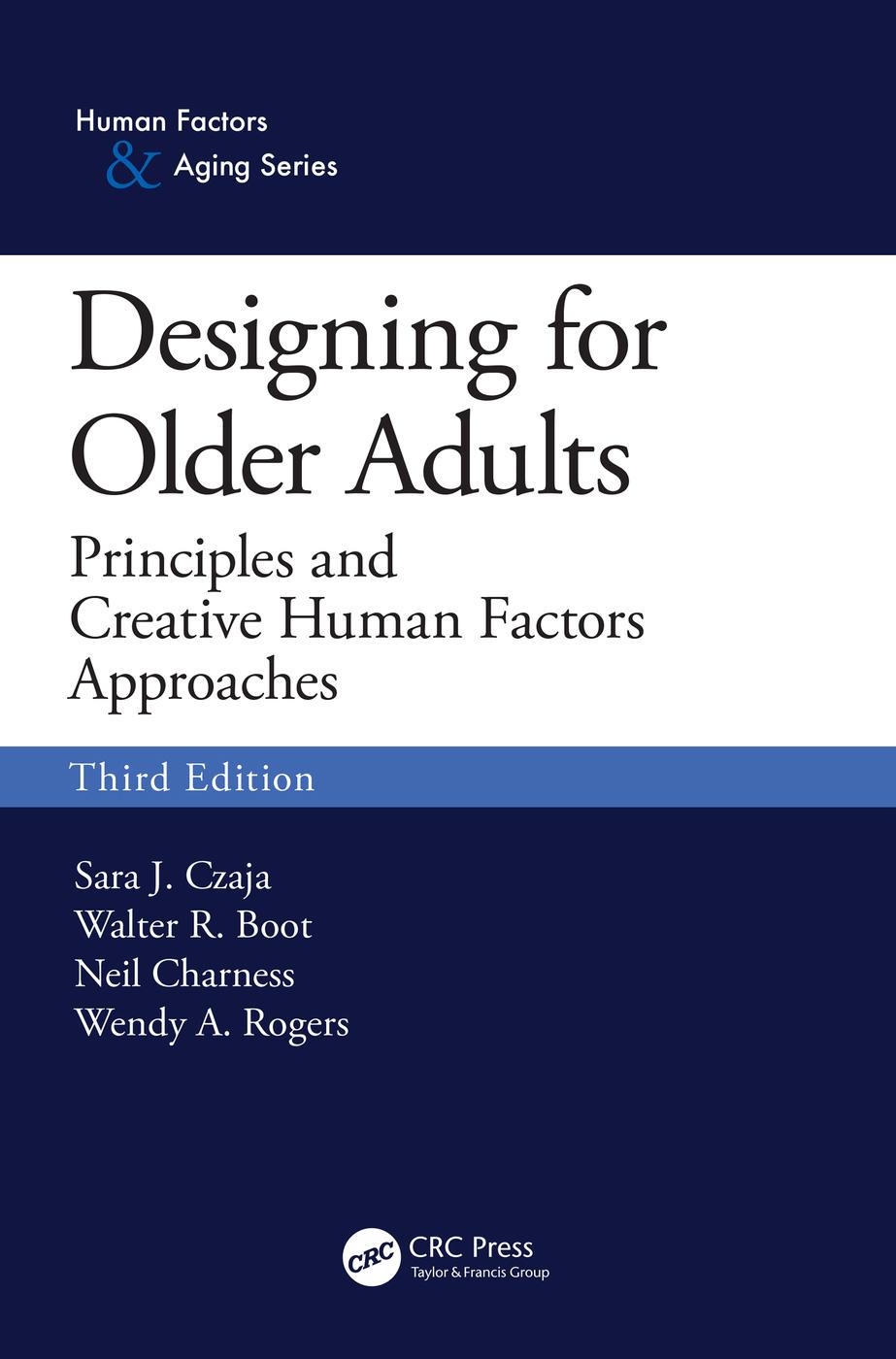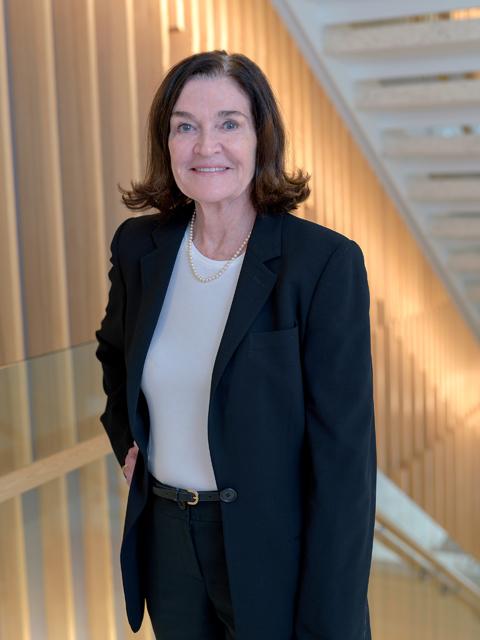Dr. Sara Czaja, an internationally recognized behavioral scientist with a background in engineering, has been serving as the Director of the newly launched Center on Aging and Behavioral Research at Weill Cornell Medicine since her recent recruitment to the Division of Geriatrics and Palliative Medicine. Under Dr. Czaja’s direction, the new center is achieving major breakthroughs in research in applied gerontology. Advances at the center are rapidly creating a better quality of life for an ever-growing older population. By 2040, it is estimated that 80 million people (or 21%) in the U.S. will be over the age of 65 years old.

PRISM (Personal Reminder Information & Social Management), a supplemental grant of CREATE, is focused on older people who have MCI (Mild Cognitive Impairment); 33% of this study are over the age of 80. Currently in the second phase of investigation, PRISM involves many collaborations and locations including assisted living facilities in Miami, senior housing in Illinois, rural areas, and New York City. PRISM is a software system designed by the CREATE team to support memory, social connectivity, access to resources, and new learning. It is available in both English and Spanish. A Professor of Gerontology, Dr. Czaja utilizes technology to facilitate the performance of older workers, to assist dementia caregivers, to enable older adults to use e-health apps and the Internet, and to support memory and social connectivity. A member of the National Academy of Sciences Committee on Human Systems Integration, Dr. Czaja is the founder and has been the Director of CREATE (Center for Research and Education on Aging and Technology Enhancement) for more than two decades. CREATE is an NIH-funded and multi-university collaboration dedicated to expanding the use of technology among older adults. As Director of CREATE, Dr. Czaja leads many collaborative studies that are delivering practical benefits for older people. A hallmark of her research has been the user-centered design process, which involves older adults in the design process to help ensure new systems in a way that allows them to reach their highest potential.“Life doesn’t stop at age 65,” says Dr. Czaja, who is an author of the groundbreaking book, Designing for Older Adults: Principles and Creative Human Factors Approach. Geared towards the design community, the book has chapters on the characteristics of older adults, basic principles of design, and how to better involve older adults in design research. Dr. Czaja’s research has shown that the older population does not fit the model that assumes they can’t text, email, figure out Facebook, or find information online. Dr. Czaja, who has studied many hundreds of older individuals, is happy to report that the age of the oldest person she has seen using technology with great success is 98 years.
“One of the most important aspects of PRISM,” explains Dr. Czaja, “is that we have involved older people in the design of PRISM. We got input regarding what works for them and what is challenging. They helped, for example, to suggest meaningful content for the features.”
Dr. Czaja has also been a major contributor to the REACH trial, the nation’s largest caregiver intervention trial that focused on the chronic stress associated with dementia caregiving. “Caregivers can benefit from technology that can support caregiving activities, such as learning about caregiving skills and the daily life activities,” says Dr. Czaja. Those daily activities include dealing with prescriptions and obtaining medications, booking a ride, food deliveries, and more. Another line of study that Dr. Czaja is investigating focuses on older adults and financial exploitation. In collaboration with the University of Pittsburgh, this NIH-funded five-year study explores the factors and variables that predispose older adults to financial exploitation with the goal of developing a targeted intervention. Dr. Czaja is examining a host of factors including social support, cognitive abilities, education, literacy, and numeracy in relation to susceptibility to financial exploitation. At the study’s completion, Dr. Czaja and colleagues will establish a baseline model that will lead to interventional tools and training.

Since her arrival in 2018, Dr. Czaja has been working within many areas of medicine and science on the Weill Cornell campus. In addition to her work in the Division of Geriatrics and Palliative Medicine, she has interacted with neurology, public health, and the HIV clinic. She has also covered an enormous swath of territory throughout New York City, having already visited all five boroughs.
“There is more opportunity for growth in multidisciplinary areas and in science here at Weill Cornell. There are so many opportunities for collaboration including here on the medical campus, Cornell University in Ithaca, the Westchester Campus, and Roosevelt Island,” says Dr. Czaja.
In addition to pursuing new collaborations in research, what is a typical day for Dr. Czaja? Meeting with Ph.D.’s and statisticians, writing new grants, interfacing with computer companies, lecturing to trainees, and mentoring junior faculty. Based on the concepts in her book, which recently won the Richard Kalish Innovative Publication Award from the Gerontological Society of America, Dr. Czaja will be hosting a workshop on the Weill Cornell campus in October 2019. This workshop was previously presented in Germany where it attracted 65 attendees from around the world. And Dr. Czaja has a new book soon to be released, Current and Emerging Trends in Aging and Work.
Originally a native of Buffalo, New York, Dr. Czaja has enjoyed returning to the New York area. “I’ve been learning about the various programs here in New York and how best to work with the New York community,” she says. “New York should be proud of the great services they have for older adults and how well it is coordinated.” As part of community engagement, Dr. Czaja has established a community advisory board at the Center on Aging and Behavioral Research. The advisory board consists of a diverse group of programs from entities across New York. Their goal is to help the center meet the needs of the community and also facilitate the recruitment of patients into the center’s studies.
With so many lines of research underway and many collaborations on the horizon, it is an exciting time for the Division of Geriatrics and Palliative Medicine.
Dr. Czaja received her B.S., M.S., and Ph.D. from the University of Buffalo in New York. She was recruited to Weill Cornell Medicine from the University of Miami where she was Director of the Center on Aging. Her honors include the Jack A. Kraft Award for Innovation from the Human Factors and Ergonomics Society, the Social Impact Award from the Association of Computing Machinery, and recently, CREATE was the recipient of the first American Psychological Association (APA) Prize for Interdisciplinary Team Research.

